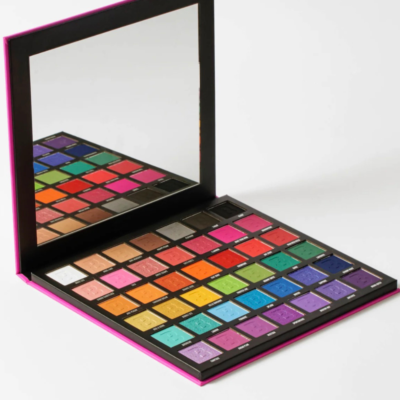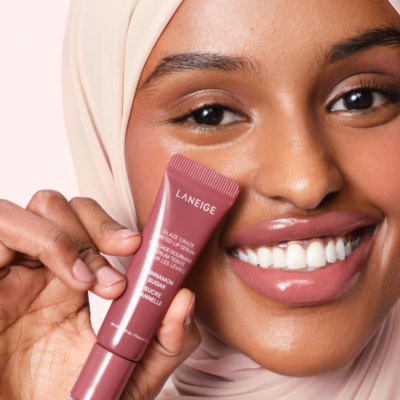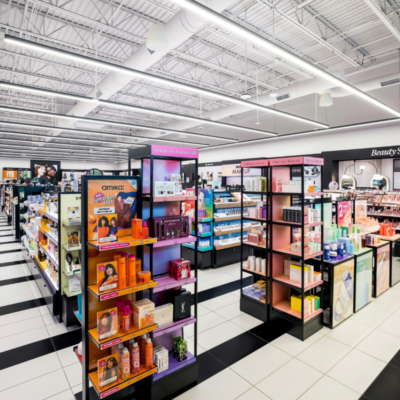
Ex-TikTok Shop Beauty GM Launches Firm To Help Brands Win The AI Shopping Revolution
Kelsie Johnston, one of the architects of TikTok Shop’s explosive growth in the United States, is turning her attention to the next wave in retail disruption: artificial intelligence-driven agentic commerce.
Launched today, her new firm KJT Ventures will advise consumer brands on how to deploy winning commerce strategies as searching and shopping for beauty products moves to large language models (LLMs) like ChatGPT, Claude, Perplexity and Search Generative Experience by Google. According to research from management consultancy Bain & Co., about 80% of consumers now use AI for at least 40% of their searches. In September, OpenAI introduced Instant Checkout to facilitate single-item purchases through ChatGPT. Over 1 million Shopify merchants will soon be integrated into the function.
TikTok Shop’s beauty and personal care GM for the past two years, Johnston helped engineer the platform’s rise from pre-revenue in the United States to $2 billion in beauty sales as it successfully intertwined online shopping with creator content. But as quickly as TikTok Shop rose to become a beauty power player, the landscape is shifting again, and Johnston argues agentic commerce is poised to upend traditional marketing funnels and fundamentally change consumers’ interactions with brands. She says, “Everyone talks about AI, but very few people have actually understood the impact of agentic commerce and what this is going to mean.”

To increase AI visibility for its clients, KJT Ventures has three core pillars: community, content and social commerce. It also provides fractional leadership in operations, marketing, sales and business development as well as team-building expertise. The firm is targeting a wide range of companies for clients, from pre-revenue startups to larger consumer product firms. Johnston will operate KJT Ventures solo at launch with plans to develop an in-house team.
Starting her career as an apparel buyer at Macy’s and Saks Fifth Avenue, Johnston segued into online retailing at Jet.com after the e-commerce company was acquired by Walmart in 2016. From there, she went brand-side by joining Coty, where she stepped into the role of senior director of U.S. e-commerce and digital before being recruited by TikTok, which has redefined influencer marketing and social shopping.
With recommendations from AI platforms like ChatGPT currently prioritized by authority, accuracy and distinctive content over paid placement, Johnston is adamant that beauty brands hyper-focus on advocacy online and IRL to propel momentum as AI reshapes shopping. “Agents are scraping the internet for what people truly think. They’re rewarding brands that have built ecosystems of advocacy,” she says. “The future of commerce is really going to be driven by community. It’s figuring out how to properly activate against creators, customers and anybody else that interacts with your brand.”
To prepare for the next era of online shopping, beauty brands will need to optimize cross-channel footprints with clear and direct explanations of what they offer and why they matter. Johnston points to answer-ready formats that AI chatbots can easily crawl from websites like how-to tutorials, comparisons and use cases and comprehensive FAQ sections that mimic how brands’ customers interact with AI. Johnston instructs, “The lowest lift tactic to implement is a PDP [product detail page] refresh that mirrors how people actually ask for solutions, not how marketers want to describe products.”
“The future of commerce is really going to be driven by community.”
Johnston also suggests that beauty brands foster credibility beyond owned content through creator partnerships, social media conversations, editorial coverage and user-generated content in online forums. She identifies Reddit as particularly effective at amplifying brands’ AI visibility.
Metrics around visibility and rank will become table stakes as AI shopping goes mainstream. “Invest in the proper tools and start tracking how AI agents discover and recommend your brand,” says Johnston, noting that website clicks will become a less relevant measure of engagement as AI-powered search summaries pummels organic direct-to-consumer traffic. “Traffic may no longer be the right metric. It might be your ability to acquire new customers and manage an effective CRM [customer relationship management].”
Johnston believes beauty brands that adopt a first-mover mentality with AI optimization will reap the benefits just as the early adopters of TikTok Shop did. In the short term, she figures that brands won’t have to divert investment away from other channels to implement AI shopping strategies. She emphasizes that timing is everything.
“It doesn’t have to be a fully baked perfect strategy, but let’s just get educated and let’s get conversations going,” she says. “Five years from now when this is truly mainstream, it’s going to be a very different entry point.”





Leave a Reply
You must be logged in to post a comment.